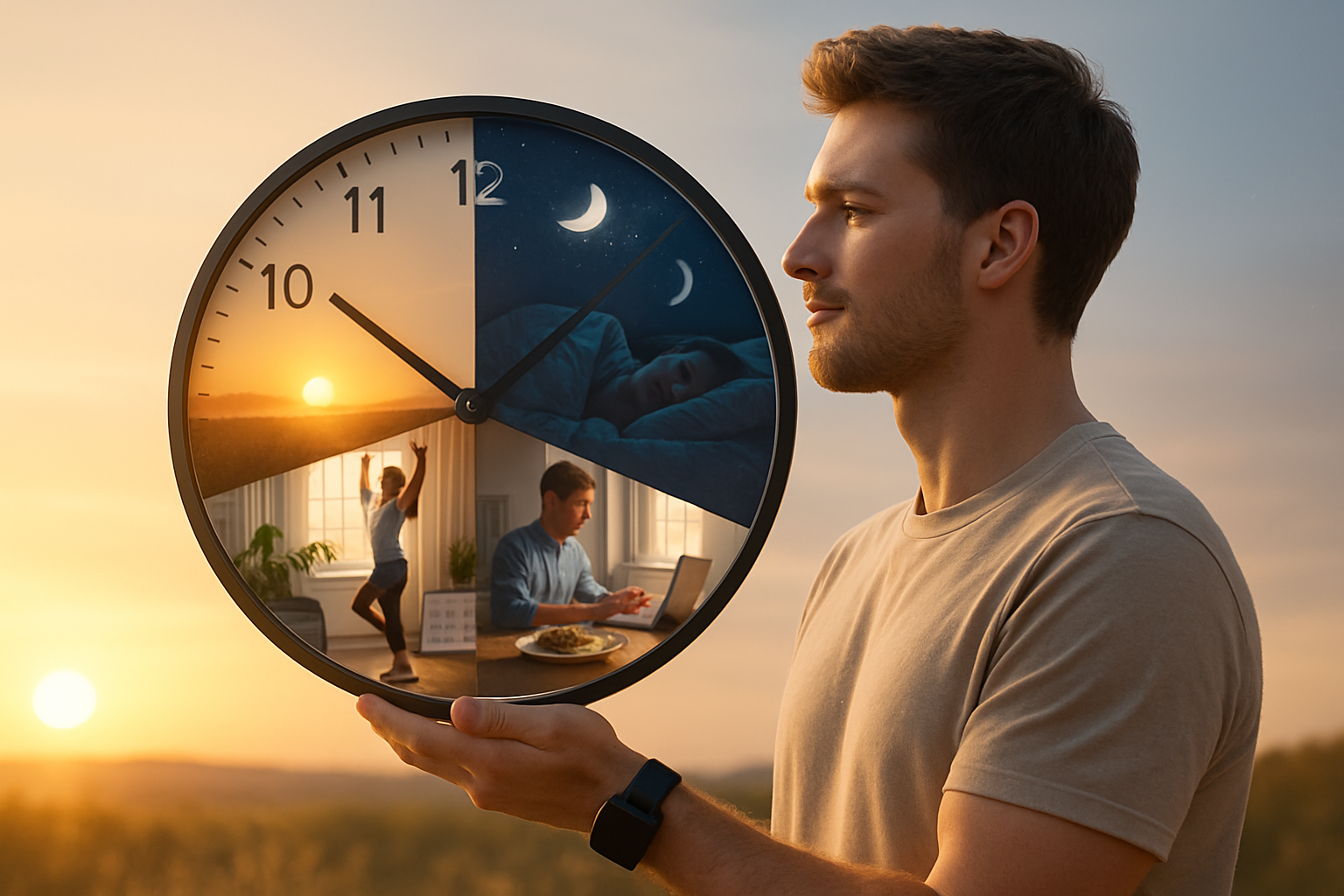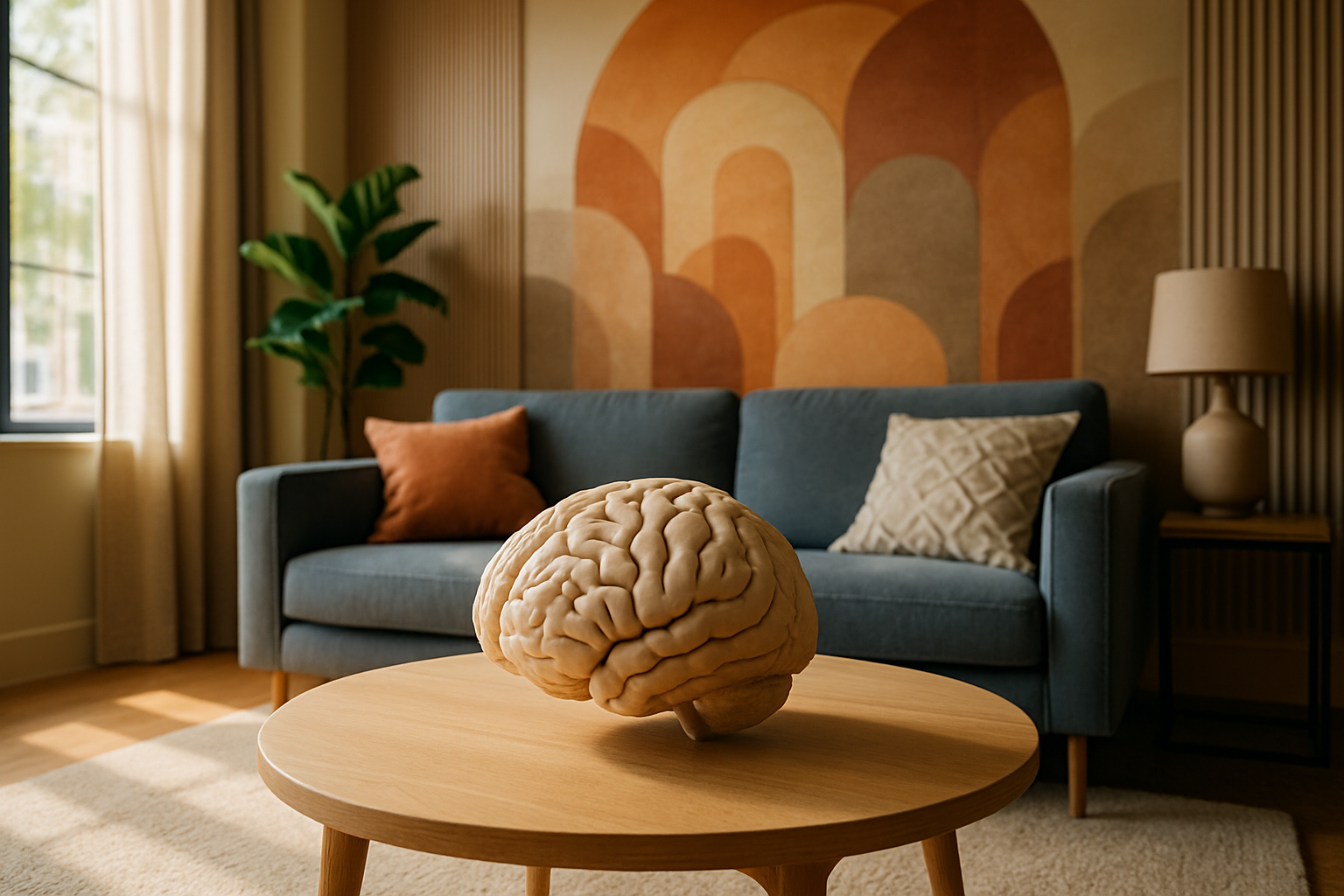Chronotypes and Health: Aligning Your Daily Rhythm for Optimal Wellness
Are you a night owl struggling to fit into an early bird's world? Or perhaps you're an early riser who can't understand why others can't seize the day at dawn. What if your sleep patterns were more than just personal preference, but a key to unlocking your health potential? Welcome to the fascinating world of chronotypes and their profound impact on our well-being.

The Science Behind Chronotypes
Chronotypes are rooted in our genetic makeup and influenced by environmental factors. They represent our body’s natural tendency to be more alert and active at certain times of the day. This biological rhythm is controlled by the suprachiasmatic nucleus in our brain, often referred to as our body’s master clock.
Research in chronobiology has identified four main chronotypes: Lions (early risers), Bears (intermediate), Wolves (night owls), and Dolphins (light sleepers). Each type has distinct peak times for various activities and physiological processes, including hormone production, body temperature regulation, and cognitive function.
Understanding your chronotype can provide valuable insights into optimizing your daily schedule. For instance, Lions may perform best with early morning workouts, while Wolves might find their creative peak in the late evening hours.
Chronotypes and Physical Health
The alignment of our daily activities with our chronotype can significantly impact our physical health. Studies have shown that individuals who follow schedules that match their natural rhythms experience better sleep quality, improved digestion, and enhanced immune function.
For example, Bears, who make up about 50% of the population, tend to follow the solar cycle closely. They typically feel most energetic a few hours after waking and experience a post-lunch dip in alertness. Structuring meal times and exercise routines around these natural ebbs and flows can lead to better metabolic health and weight management.
Wolves, on the other hand, may struggle with early morning obligations, as their peak alertness occurs later in the day. Forcing a Wolf to conform to an early bird schedule can lead to chronic sleep deprivation, increasing the risk of various health issues, including cardiovascular problems and weakened immunity.
Mental Health and Cognitive Performance
Our chronotype doesn’t just affect our physical well-being; it also plays a crucial role in our mental health and cognitive abilities. Research has shown that misalignment between our internal clock and external schedules can contribute to mood disorders, including depression and anxiety.
Lions, characterized by their early-rising tendencies, often experience peak cognitive performance in the morning hours. They may find complex problem-solving and analytical tasks most manageable during this time. Conversely, Wolves might struggle with early morning mental tasks but excel in creative endeavors later in the day.
Recognizing and respecting these cognitive patterns can lead to improved productivity, reduced stress, and better overall mental well-being. It’s not just about when we sleep, but also about when we tackle different types of tasks throughout the day.
Chronotypes in the Workplace
The concept of chronotypes has significant implications for workplace productivity and employee well-being. Traditional 9-to-5 schedules may not be optimal for all chronotypes, potentially leading to decreased productivity and increased stress for some employees.
Progressive companies are beginning to recognize the value of chronotype-aligned schedules. Flexible working hours, for instance, allow employees to work during their most productive periods. This approach can lead to improved job satisfaction, enhanced creativity, and reduced burnout.
For example, a Wolf-type employee might perform better with a later start time, while a Lion could be more productive with earlier hours. By accommodating these differences, organizations can create a more harmonious and efficient work environment.
Adapting to Your Chronotype
While we can’t change our genetic predisposition to a particular chronotype, we can make lifestyle adjustments to better align with our natural rhythms. Here are some strategies to optimize your daily routine based on your chronotype:
-
Identify your chronotype through observation or chronotype assessments
-
Adjust your sleep schedule to match your natural rhythm as much as possible
-
Plan your most demanding tasks during your peak alertness periods
-
Structure your meal times to support your body’s natural metabolic patterns
-
Optimize your light exposure to reinforce your circadian rhythm
-
Consider discussing flexible work arrangements with your employer if possible
Chrono-Nutrition: Eating in Sync with Your Body Clock
-
Timing your meals according to your chronotype can improve digestion and metabolism
-
Lions may benefit from earlier dinner times to support their early sleep schedule
-
Wolves should avoid heavy meals late at night, despite their tendency to stay up late
-
Consuming protein-rich breakfasts can help Bears maintain steady energy throughout the day
-
Dolphins, with their irregular sleep patterns, may find that light, frequent meals work best
As we continue to unravel the complexities of our internal clocks, it’s clear that understanding and respecting our chronotypes can lead to significant improvements in our health and well-being. By aligning our daily routines with our natural rhythms, we can unlock our full potential for physical health, mental acuity, and overall life satisfaction. Embrace your chronotype, and let your internal clock guide you to a healthier, more balanced life.





